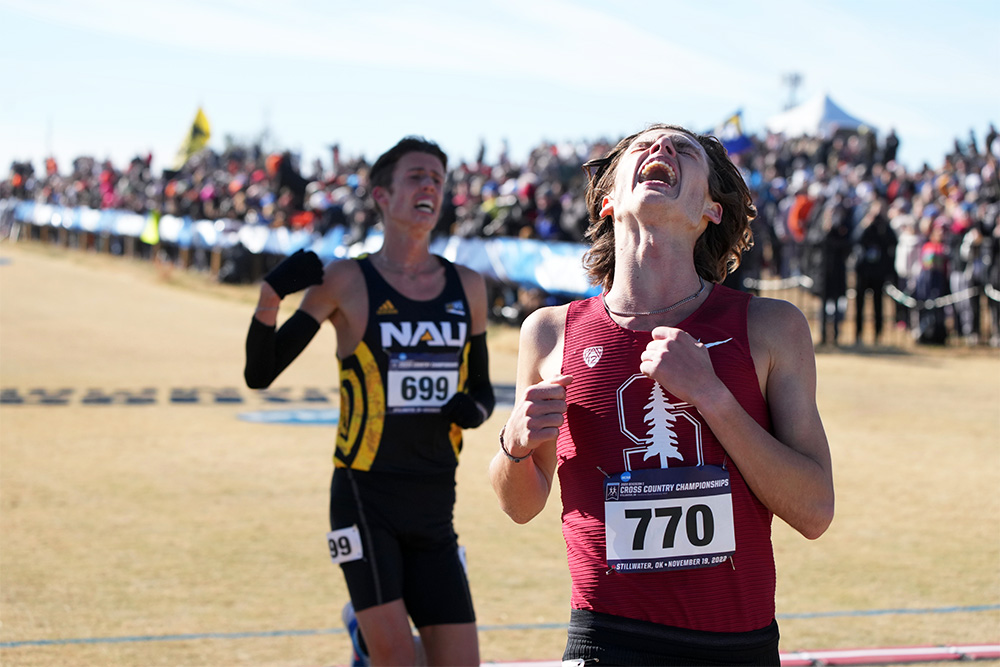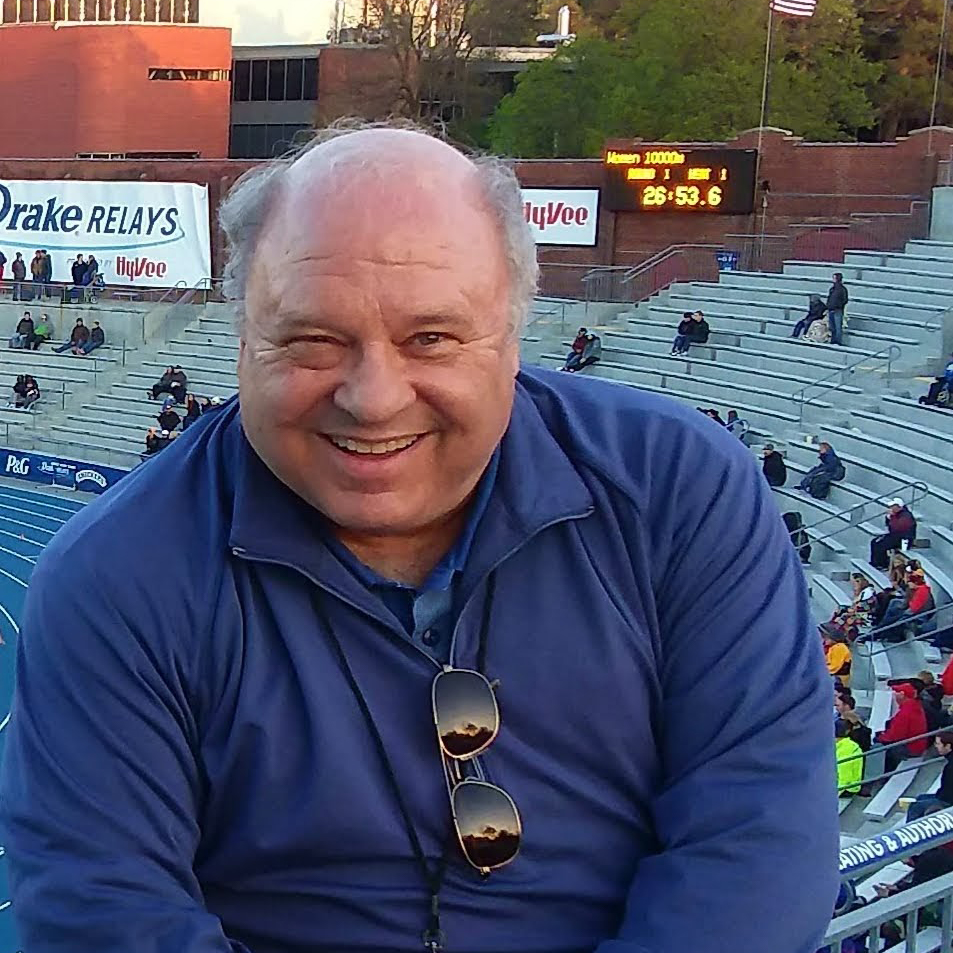
JUST AS King Charles III assumed the head of the British monarchy a few months ago, so too has another London-born Charles taken another royal title of sorts—king of American collegiate cross country.
Stanford’s Charles Hicks, who now hails from Jacksonville, Florida, but was born in Great Britain 21 years ago, became the first Cardinal runner to win the NCAA harrier title, waging a great duel with fellow frontrunners Nico Young and Drew Bosley of Northern Arizona.
They basically led wire-to-wire, taking the measure of a talented field early on and never letting up over the undulating (to say the least) and challenging (to put it mildly) Oklahoma State course.
That the trio ran away from a field that included defending NCAA 10K track champ Dylan Jacobs of Tennessee and a slew of other all-Americans was testimony to the precise and effective race strategy planned by NAU, adopted quickly by Hicks and executed by the three.
Hicks’s winning time of 28:43.6 was 40 seconds better than Conner Mantz ran when he won the first of his two titles on the same route in ’21. Did he think he could run that fast? “Absolutely not,” he said. “It’s such an exceptionally unique course, that having guys run it before really helps you manage your expectations and how you go out. [In ’21] a lot of guys went out too fast, myself absolutely included.”
Hicks was “amazed” to learn he was the first Stanford winner, given that the likes of NCAA track champs Grant Fisher, Ryan Hall, Ian Dobson, Jonathon Riley, Nathan Nutter, Don Sage and Brad Hauser didn’t take an overland title.
Hicks spent his first 12 years in England and began running there in an annual called “schools.” He recalls, “Everyone from all four schools just was mandatory forced to race. I don’t think I ever started independently of that. I’m very grateful for my school for forcing all of us out there and after that, I kind of started running twice a week. After we moved to United States, when I was 12, I came onto the cross country team, and I think I started training maybe a few days a week and then at 14 I started training 7 days a week.”
He played soccer until his sophomore year of high school on the varsity team but by then his running was really starting to take off. “I had to take a real ‘look in the mirror’ moment where I really did love playing it, but it’s just a very high-contact sport on your lower body,” he explains. “That [would have] impeded my running career long-term. So, going into my sophomore year, I decided to commit to running full-time.”
As the NCAA race progressed, it really became a race within a race, or a sub-plot within the bigger plot. Hicks, Young and Bosley were running not only for their individual success but also for their teams, given that Stanford was at that point still in the hunt for the team title along with NAU, BYU and Oklahoma State.
“It was really interesting to see the way we were all sort of on the same page but also running the race a little differently,” Hicks says. “It’s that balance between trying to run for yourself and try to run for the team.
“You identify key moments in the race [where you have] opportunities to make a move. I didn’t think it was just going to be three of us the whole way around. I mean, the race is a long, long distance and usually, you know, you have those guys who are kind of over-examining themselves in that front pack for the first half of the race and then they figure things out and are ready to kick and those guys want to have a chance to win the race too.”
Ultimately, Hicks says, it was pretty basic cross country racing, with three men running to win and gauging one another and being ever watchful for “the move” that would decide the championship and define each man’s day:
“I mean, it was just so simple from the start. It was just me and two other guys running lights-out as fast as we can, and then, yeah, it ended up going back into what I thought it would be — which is the trying to run as hard as I could.”
As he and Young sprinted toward the line, Hicks says he was waiting as they came around the corner for Young to come up on his shoulder again. “And then I think I did a quick little look back, but then I looked to the ground and saw this big blue ‘NCAA’ and it hit me like a light. Every single mile and the physio and the workouts and the team, it all just got compressed into that one moment. An amazing feeling.”
He praises his teammates (“like brothers”) for their reaction to his win despite their disappointment over not getting the team title. “The way that my teammates reacted was amazing and we’re still only a day out. So I’m still swimming in it. I really never imagined it.”
Hicks makes it a point to laud Stanford coach Ricardo Santos, who arrived at Stanford following Chris Miltenberg’s departure for North Carolina early in the summer prior to the start of Hicks’s frosh year: “We didn’t hear anything for some time and didn’t know who our coach would be, but then Coach Santos arrived, and I resolved that I was going to buy into whatever he wanted. I’ve always had that belief in him through so many seasons.”
He’s not yet finished with cross country. Before he starts thinking about the ’23 track season, when he has that elusive track 10K title in mind, Hicks hopes to represent Britain in the Euro Cross on December 11 in Italy.
